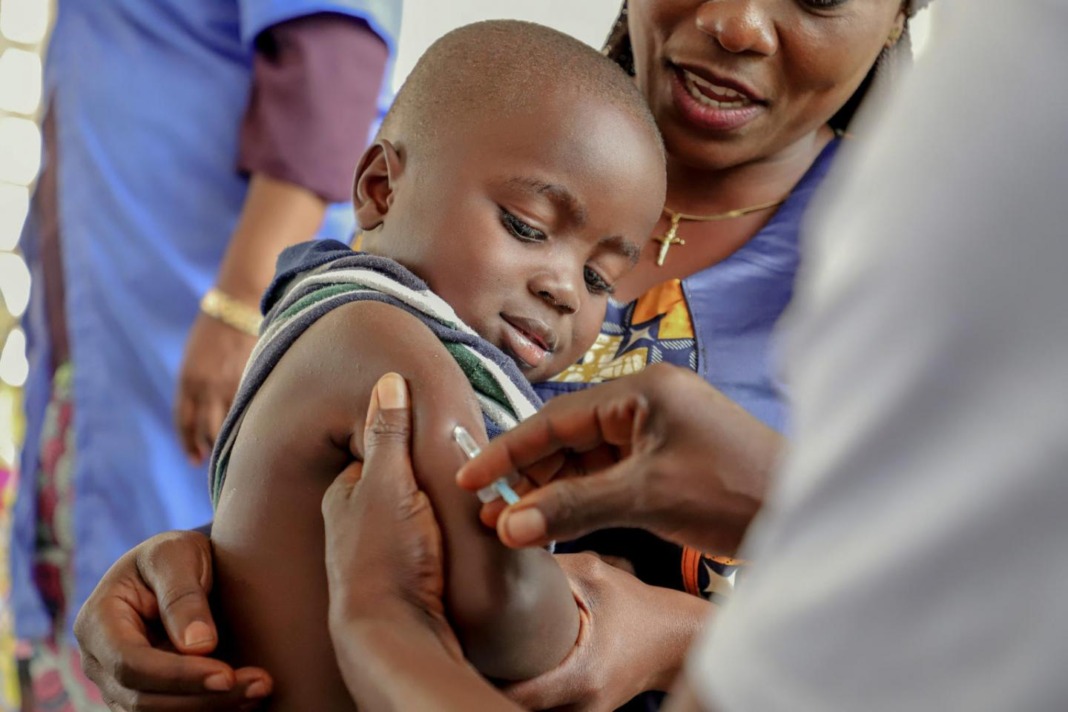Nigeria, May 23, 2023 – Startling findings from the 2021 Multiple Indicator Cluster Survey (MICS) and National Immunization Coverage Survey (NICS) reveal that a significant number of children between the ages of 12 to 23 months have not received the recommended vaccines under the National Expanded Programme on Immunization (EPI). Approximately 64% of children in this age group have failed to receive all the necessary vaccines within the last five years. The implications of this alarming trend include an increased risk of outbreaks and child mortality due to vaccine-preventable diseases.
Immunization stands as one of the most cost-effective and proven methods for combating life-threatening infectious diseases, estimated to avert approximately three million deaths globally each year. The World Health Organization (WHO) emphasizes the importance of routine immunization (RI) for all children and recommends appropriate vaccinations throughout their lives. Nigeria’s current routine childhood vaccination regimen safeguards children against a range of diseases, including tuberculosis, hepatitis B, polio, diphtheria, pertussis, tetanus, Haemophilus influenza type b, pneumococcal disease, rotavirus, measles, yellow fever, and meningitis.
Collaborating with the Government of Nigeria, WHO, GAVI, the Bill and Melinda Gates Foundation (BMGF), and other partners have been implementing free routine immunization programs across public health facilities in the country. One such facility is Kuje General Hospital in the Kuje Area Council of Abuja. The hospital’s immunization clinic operates from Monday to Friday, ensuring that all recommended antigens are administered to children under two years of age.
“For a caregiver like Mrs. Edna Lawrence, her 9-month-old daughter (Ose) has not missed any of her vaccination schedules. Ose was at the clinic to receive the measles, yellow fever, and vitamin A antigens,” Mrs. Lawrence states. “I want her strong and healthy. I know vaccines can keep her safe from many diseases like tuberculosis, polio, and many others.”
“To prevent misinformation or missed vaccination or zero dose cases, we usually give health talks to pregnant women and caregivers during antenatal and immunization days,” explains Fesobi Oluwabunmi, the head nurse at Kuje General Hospital.
“In 2020, I almost skipped my son’s immunization schedule because my neighbor said her children did not receive those vaccines,” Mrs. Seifa Adams shares. “My neighbor has three children. She advised that her co-wives warned her against some vaccines because of the side effects on the children. Now I know better, and my children have not been falling sick like hers.”
“We call them and sometimes go find them with the antigen and vaccinate the children in their homes. The reasons they give for missing schedules are financial constraints, not having time to leave work or that they traveled,” Nurse Fesobi Oluwabunmi explains.
“I follow them to the clinic on their immunization days. It is the duty of everyone – not just mothers and health workers – to make sure all children are fully vaccinated,” says Mr. Olajide Adiodun, a businessman and father.
“With WHO celebrating its 75th anniversary in improving public health, making progress towards health equity requires understanding where there are gaps in access or uptake of vaccines, why those gaps exist, and what can be done to address them,” says the WHO Country Representative, Dr. Walter Kazadi Mulombo.
Immunization, Top of National Agenda for Nigeria
Dr. Mulombo further adds, “Vaccination should continue to remain top on the national agenda for Nigeria and as part of the broader PHC revitalization effort to achieve Universal Health coverage. WHO will continue to provide technical support to the government of Nigeria to ensure catch-up vaccination efforts are achieved and no one is left behind from the full benefit of vaccines.”
As Nigeria strives to improve immunization rates, the active involvement of parents, healthcare providers, and the wider community becomes critical. By prioritizing vaccination and ensuring comprehensive access, Nigeria can significantly reduce the risks of vaccine-preventable diseases among its children and safeguard their health and well-being.



